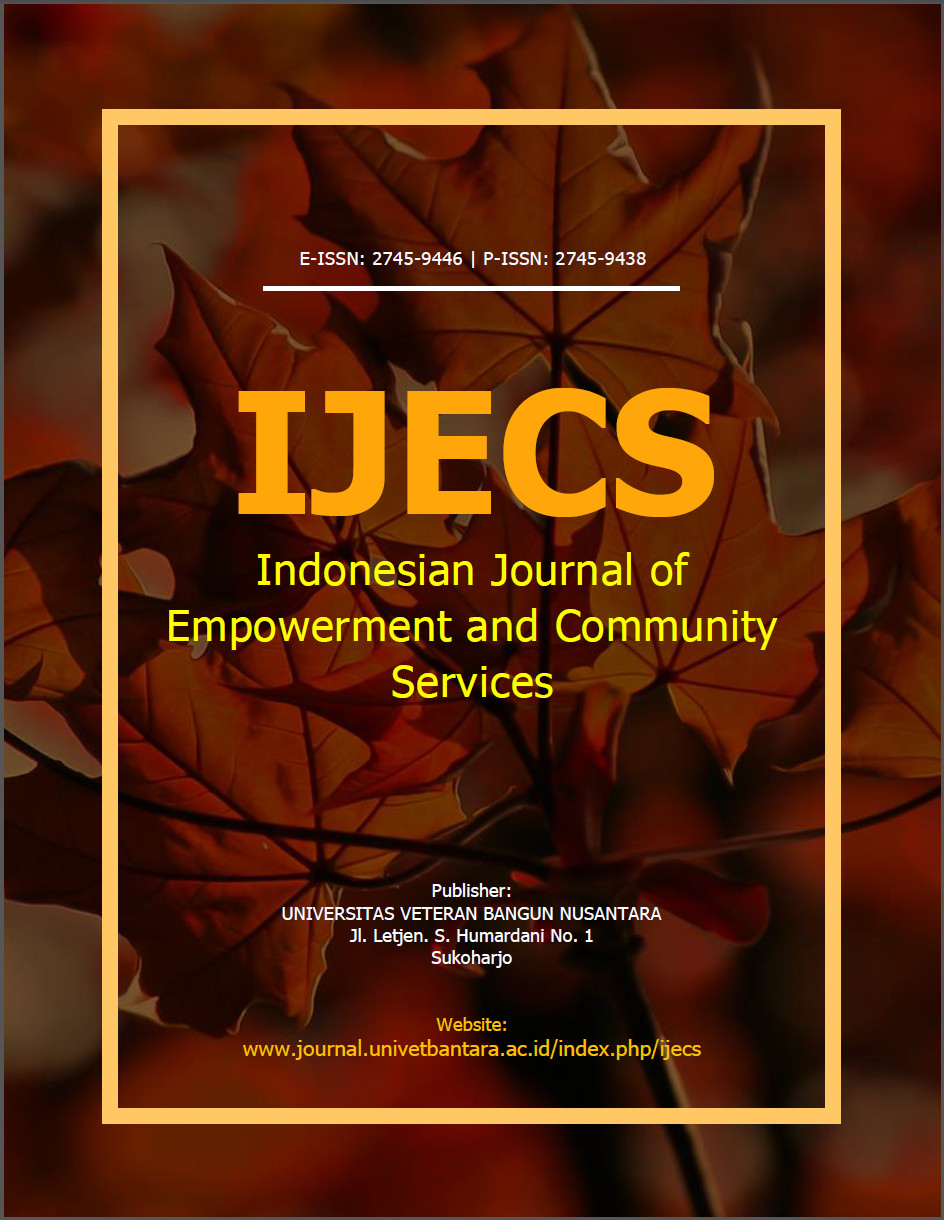Smart Home and Smart Farming Prototype Making Training Based on Internet of Things (IOT) at SMA Negeri 3 Pontianak
DOI:
https://doi.org/10.32585/ijecs.v6i1.6303Abstract
This Community Service Program (PkM) was carried out at SMA Negeri 3 Pontianak with the aim of providing training to students related to the implementation of Internet of Things (IoT) technology in smart home and smart farming systems. This activity was chosen because most of the Indonesian population does not have an understanding and knowledge of the IoT concept, especially the younger generation of school age. The implementation method includes socialization, training and direct simulation of making IoT-based smart home and smart farming prototypes using ESP8266 sensors as microcontrollers. The PkM activities succeeded in increasing the participants knowledge about IoT. The results of this questionnaire prove the increased understanding of participants from the delivery of material and increased ability to use and develop IoT and increased learning motivation to apply IoT technology in everyday life. This proves the positive impact of the facilitator's involvement on partners, with this training it is hoped that new ideas or ideas will emerge from the younger generation to face the digital era and be able to identify and solve problems around them by utilizing Internet of Things technology.
Keywords: Internet of Things (IoT), Smart Home, Smart Farming, SMA Negeri 3 Pontianak
Downloads
Downloads
Published
How to Cite
Issue
Section
License
Copyright (c) 2025 Ferry Hadary, Ochih Saziati, Herda Desmaiani

This work is licensed under a Creative Commons Attribution-ShareAlike 4.0 International License.
Authors who publish with the IJECS: Indonesian Journal of Empowerment and Community Services agree to the following terms:
- Authors retain copyright and grant the journal the right of first publication with the work simultaneously licensed under a Creative Commons Attribution License (CC BY-SA 4.0) that allows others to share the work with an acknowledgment of the work's authorship and initial publication in this journal.
- Authors are able to enter into separate, additional contractual arrangements for the non-exclusive distribution of the journal's published version of the work (e.g., post it to an institutional repository or publish it in a book), with an acknowledgment of its initial publication in this journal.
- Authors are permitted and encouraged to post their work online (e.g., in institutional repositories or on their website) prior to and during the submission process, as it can lead to productive exchanges, as well as earlier and greater citation of published work.





